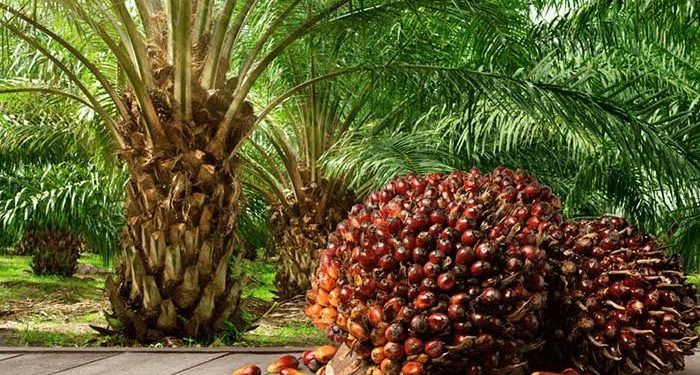Nigeria’s 2025 budget faces new pressure as global crude oil prices continue to fall amid escalating trade tensions, prompting experts to urge the government to embrace palm oil production as a vital alternative revenue source.
With Nigeria’s crude oil output dropping by about 32 percent—from 2.06 million to 1.4 million barrels per day—the country’s heavy dependence on oil, which contributes 76 percent of its national income, is becoming increasingly risky. Meanwhile, palm oil is commanding higher prices internationally, offering a fresh economic lifeline. Brent crude currently sells for $65.90 per barrel, while palm oil fetches $167.38 per barrel, a gap that leading producers are rapidly exploiting.
Industry analysts believe that palm oil could become Nigeria’s next major economic engine if properly developed. A leading voice in the sector described palm oil as “the new gold—except this one delivers real profits, not just valuations,” noting its growing global demand in industries ranging from food production to cosmetics and manufacturing.
Recent financial reports highlight the sector’s promise. Two of Nigeria’s top agro-industrial firms, Okomu Oil Palm Company and Presco Plc, achieved record-breaking profits in 2024 despite inflationary pressures and a volatile naira. Presco’s after-tax profits soared by 4,088.7 percent since 2015, while Okomu posted a 1,188.3 percent increase. According to data research firm Intelpoint, Okomu Oil’s profits jumped from ₦21.2 billion in 2023 to ₦34.3 billion in 2024, a 62 percent rise. Presco, on the other hand, saw profits after tax rise from ₦32.9 billion to ₦104 billion within the same period, marking a 217 percent increase.
Signs of a revival in Nigeria’s oil palm industry are becoming clearer. With 1.5 million hectares earmarked for replanting and surging global demand, experts believe there are substantial opportunities across the palm oil value chain—from cultivation to processing and distribution.
However, Nigeria’s current position is a far cry from its former status as Africa’s leading palm oil exporter. Concerns are growing over the country’s missed opportunities, particularly as Indonesia, which sourced its initial oil palm seeds from Nigeria, earned $28 billion from palm oil exports in 2021 alone. In contrast, Nigeria earned $41 billion from crude oil in the same year but spent over $500 million importing palm oil.
As global oil prices remain volatile, analysts warn that further declines could be ahead. Forecasts suggest that crude prices could hover between $65 and $72 per barrel in 2025, putting Nigeria’s budget assumptions under pressure and potentially forcing a revision of the $75 benchmark or the introduction of a supplementary budget by mid-2025. The changing dynamics within OPEC, where cooperating non-members now outnumber full members, further weaken the group’s ability to control prices.
Some experts advocate increasing Nigeria’s crude oil output as a short-term strategy to boost revenues. Others, however, argue that agriculture presents a more stable and sustainable path forward. They point to the volatility of the oil market and emphasize the long-term benefits of investing in sectors like palm oil.
Amid these debates, the federal government is signaling a renewed commitment to economic diversification. Efforts to expand non-oil exports are intensifying, especially in response to new international challenges such as the United States’ recent imposition of a 14 percent tariff on Nigerian exports.
This strategic pivot mirrors wider trends across Sub-Saharan Africa, where more than 70 percent of the population relies on forests and woodlands for their livelihoods. Reviving agro-industries like palm oil, therefore, offers not only economic promise but also a means to strengthen social stability and resilience across the region.










